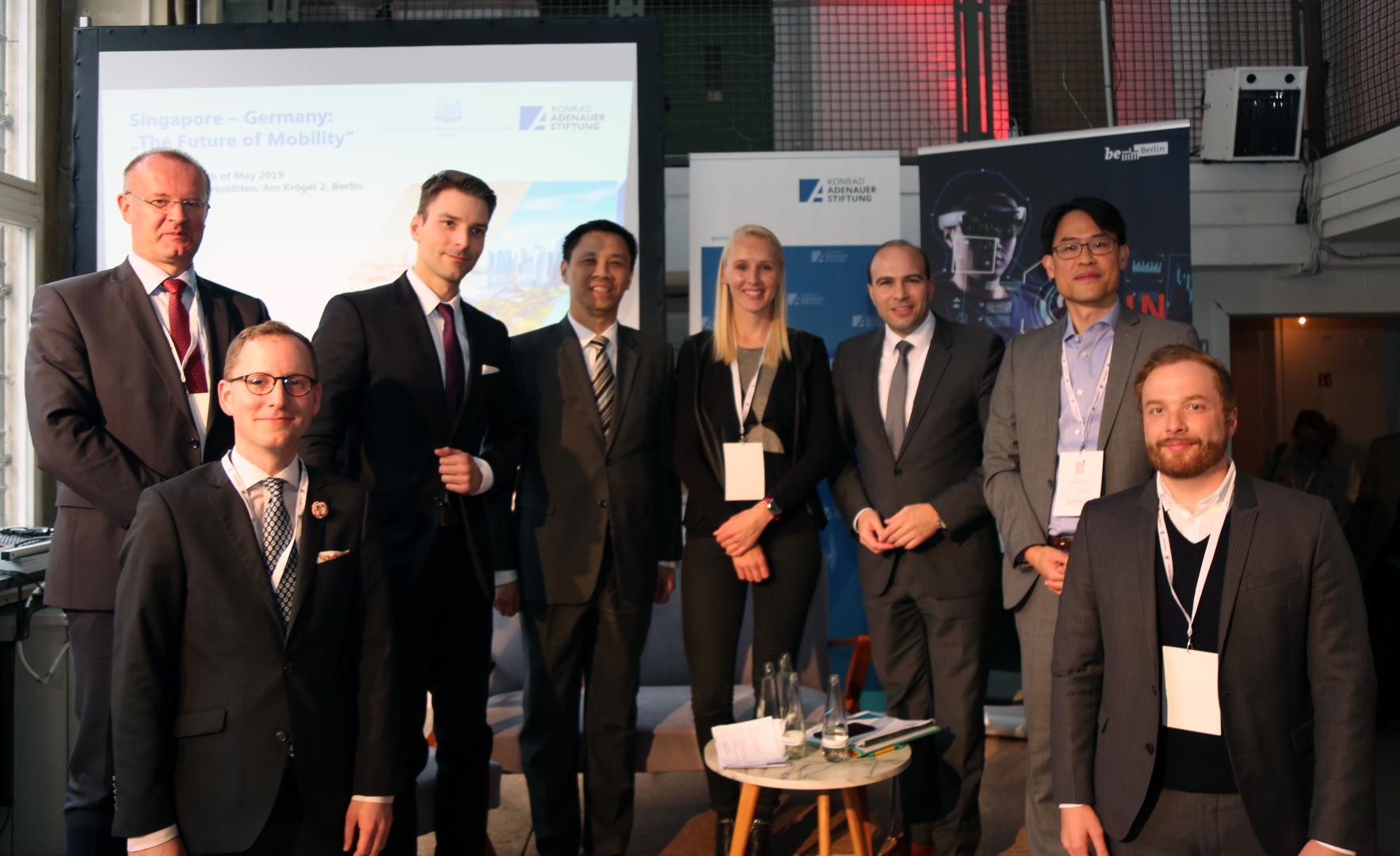As part of the annual Asia & Pacific Week in Berlin, Konrad-Adenauer-Stiftung, in cooperation with the embassy of Singapore, organised an expert talk on the topic of future mobility in Singapore and Germany.
The Asia & Pacific Week, a platform for connecting investors, founders, researchers and universities, offered the ideal setting to discuss new innovations and start-ups which are increasingly transforming our world.
The guests, His Excellency Laurence Bay, Ambassador of Singapore, Florian Oßner, MP CDU/CSU, Chris Leck, from the Land Transport Authority Singapore, as well as Björn Siebert, from the Berlin company door2door, together with moderator Vivica Mildner, journalist at Focus Online, discussed the potentials and challenges of artificial intelligence, big data, public transport and city management.
In his introductory notes Dr. Peter Hefele, Head of the Team Asia and Pacific at Konrad-Adenauer-Foundation, raised the question of how to holistically integrate mobility into our future way of living. Peter Hefele highlighted how the future is clearly urban in places like Singapore. Germany, on the other hand, faces different challenges with its rural areas as well as the strong automotive industry.
In the following, Mr. Leck presented the Singaporean perspective. Singapore, a city which is densely populated and has an ageing population is increasingly confronted with the need to come up with further travel options. The government has given green lights for a transport master plan covering the initiatives and goals until 2040. By leveraging technology and tackling issues as big data, the internet of things and artificial intelligence, the city-state prepares for autonomous driving and highly convenient and accessible on-demand transport.
Mr. Oßner and Mr. Siebert highlighted that similar ideas are discussed in Germany. However, data availability is a big challenge in Europe where data is often stored with many different providers and the European data protection law secures individual privacy. Furthermore, with remote and rural areas and little villages on the country side, on-demand services and car sharing models are more difficult to implement. On the other hand, both experts also pointed to increasing willingness and potentials within the country, especially with regards to climate protection. Door2door has set up several pilot projects offering feasible additions to existing public transport networks, even far away on the countryside.
Ambassador Bay agreed that Germans and Singaporeans share the same view on how change is urgently necessary and pointed to the threat of losing business when not adapting to new challenges in time. He also emphasised the potential of cooperation between the two countries and the need to acknowledge mobility as a whole industry and growth driver.
In the final open panel, the participants debated how Germany might be hindered by its big car industry and how drones and flight taxis could be implemented in the future.
The very lively discussion can be best subsumed with the words of Ambassador Bay: “Mobility can only go so far. What matters in the end is the innovation and ideas of people.”
About this series
The Konrad-Adenauer-Stiftung, its educational institutions, centres and foreign offices, offer several thousand events on various subjects each year. We provide up to date and exclusive reports on selected conferences, events and symposia at www.kas.de. In addition to a summary of the contents, you can also find additional material such as pictures, speeches, videos or audio clips.








